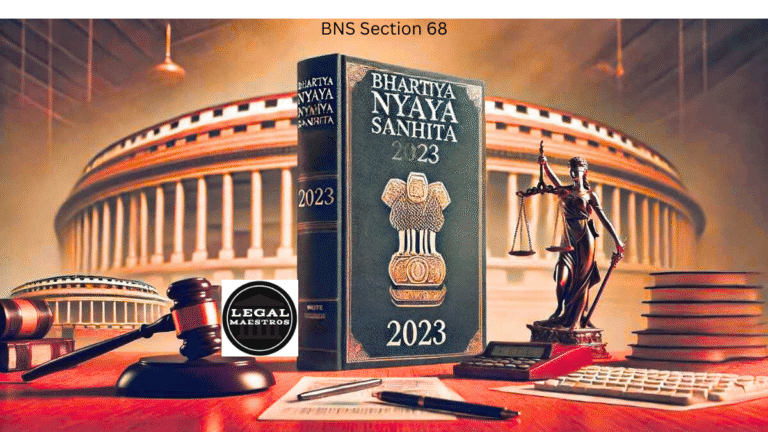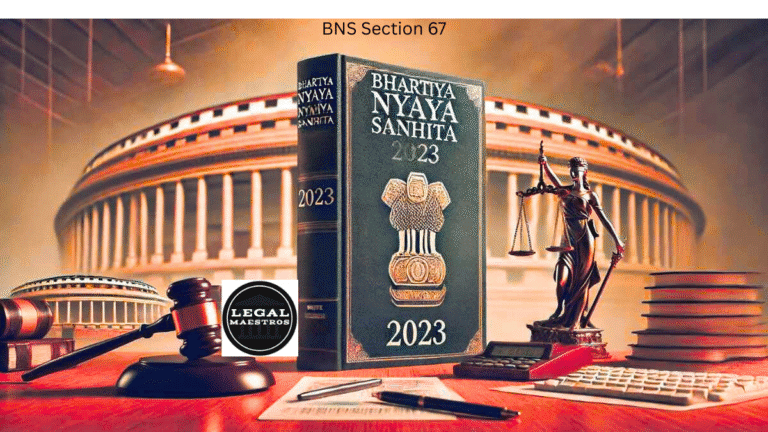
Section 65 of the Bharatiya Nyaya Sanhita, 2023: Stringent Punishments for Rape of Minors
The Bharatiya Nyaya Sanhita (BNS), which will take effect in 2023, will replace the Indian Penal Code, which was enacted during the colonial era. This will be a massive revamp of India’s criminal justice system. It is one of the articles that expressly addresses the terrible offence of rape committed against minors. Section 65 prescribes stringent sentences to prevent such horrible acts and to ensure that victims receive justice.
It is a crime to commit a rape against a girl who is younger than sixteen years old.
Any person who commits rape on a girl who is younger than sixteen years old is liable to harsh imprisonment for a time that is not less than twenty years, and this sentence may extend to imprisonment for the rest of that person’s natural life, as stipulated by Section 65(1) of the BNS. The perpetrator is subject to a fine in addition to the possibility of being imprisoned. A fine of this kind must be paid directly to the victim, and it must be just and reasonable enough to compensate the victim’s medical expenditures and rehabilitation costs. This is a requirement imposed by the law. The number 20
An illustration of this would be a situation in which a man who is thirty years old is found guilty of raping a girl who is fifteen years old. According to subsection (1) of section 65, he would be subject to a minimum of twenty years of rigorous imprisonment, which might extend to life imprisonment, and he would be compelled to pay a fine that would be intended to promote the victim’s recovery and rehabilitation.
For any queries or to publish an article or post or advertisement on our platform, do call at +91 6377460764 or email us at contact@legalmaestros.com.
For More Updates & Regular Notes Join Our Whats App Group (https://chat.whatsapp.com/DkucckgAEJbCtXwXr2yIt0) and Telegram Group ( https://t.me/legalmaestroeducators )
It is a crime to commit a rape against a girl who is younger than twelve years old.
Even more serious cases are addressed by Section 65(2) of the BNS, which applies to situations in which the victim is younger than twelve years old. In these kinds of situations, the criminal is to be punished with rigorous imprisonment for a time that is not less than twenty years, and the sentence may be extended to include imprisonment for the rest of the person’s natural life. In addition, the legislation allows for the possibility of the death penalty to be applied in situations like these. In a manner analogous to that of Section 65(1), any fine that is imposed must be fair and reasonable in order to reimburse the victim’s medical expenses and rehabilitation costs, and it must be presented to her directly. The number 20
Consider the following scenario by way of illustration: a person who is 35 years old is found guilty of committing rape on a girl who is 11 years old. In accordance with subsection (2) of section 65, the court has the authority to impose a sentence of harsh imprisonment for a least of twenty years, which may be extended to life imprisonment, or even the death penalty, taking into consideration the specific circumstances. For the purpose of assisting the sufferer in their recovery, a fine would also be imposed.
For any queries or to publish an article or post or advertisement on our platform, do call at +91 6377460764 or email us at contact@legalmaestros.com.
Concerning the Legal Context and Its Implications
As a result of the inclusion of such severe sentences in the BNS, the Indian legal system has demonstrated its dedication to protecting kids from sexual offenses. By imposing severe punishments, such as life imprisonment and the death penalty, the legislation intends to act as a powerful deterrence against the commission of crimes of this nature. Furthermore, the clause ensures that survivors receive the appropriate help for their recovery by regulating that fines be used for the victim’s medical expenditures and rehabilitation. This demonstrates an approach that is centered on the victim.





![Research Assistantship @ Sahibnoor Singh Sindhu, [Remote; Stipend of Rs. 7.5k; Dec 2025 & Jan 2026]: Apply by Nov 14, 2025!](https://legalmaestros.com/wp-content/uploads/2025/11/Gemini_Generated_Image_s0k4u6s0k4u6s0k4-768x707.png)
![Karanjawala & Co Hiring Freshers for Legal Counsel [Immediate Joining; Full Time Position in Delhi]: Apply Now!](https://legalmaestros.com/wp-content/uploads/2025/11/Gemini_Generated_Image_52f8mg52f8mg52f8-768x711.png)
![Part-Time Legal Associate / Legal Intern @ Juris at Work [Remote]: Apply Now!](https://legalmaestros.com/wp-content/uploads/2025/11/ChatGPT-Image-Nov-12-2025-08_08_41-PM-768x768.png)
![JOB POST: Legal Content Manager at Lawctopus [3-7 Years PQE; Salary Upto Rs. 70k; Remote]: Rolling Applications!](https://legalmaestros.com/wp-content/uploads/2025/11/ChatGPT-Image-Nov-12-2025-08_01_56-PM-768x768.png)